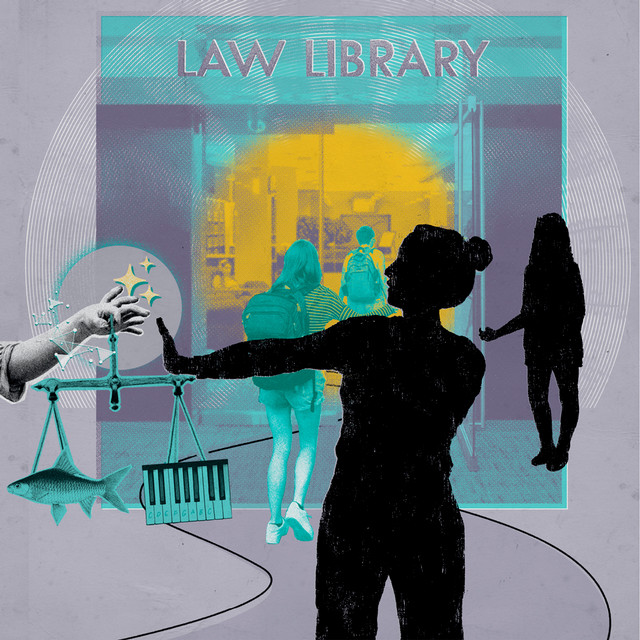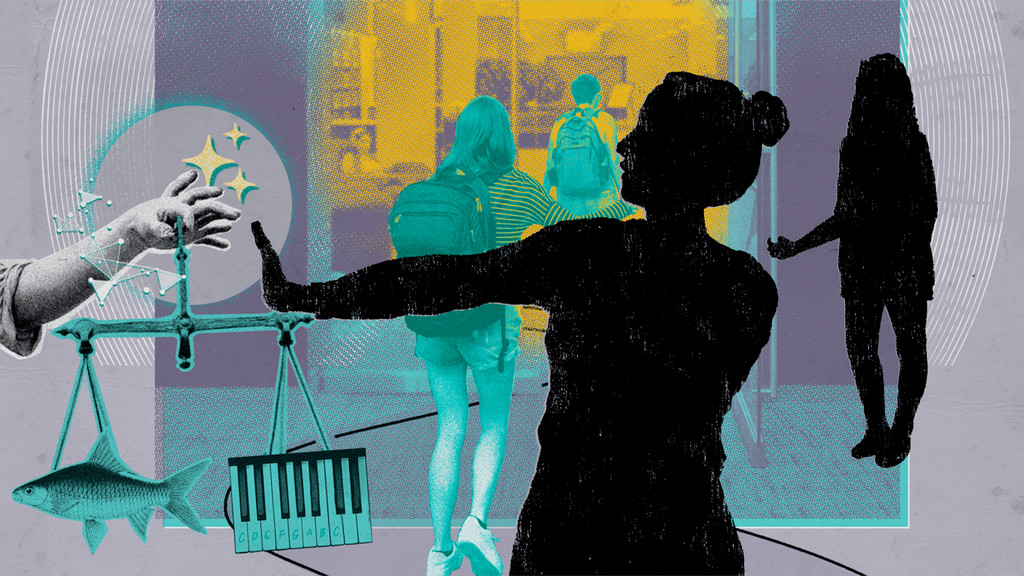When Joyce Manna Janto, L’89, instructs her students to compare their findings about a case to the response of a generative artificial intelligence platform, she’s not just teaching advanced legal research. She’s conducting an effective exercise in the importance of digital literacy.
After weeks under Janto’s tutelage, her students can easily trace the path of Levick v. MacDougall from the circuit court to its appellate court decision and subsequent reversal by the Supreme Court in 2017, which set a new precedent about the legality of marriage in Virginia when the ceremony predates the licensure. But when the students ask OpenAI, as well as two legal AI tools provided by LexisNexis and Thomson Reuters, to confirm this legality, the returns raise eyebrows.
“My students were appalled that even the law-based AIs were not giving them the correct answer,” Janto says, explaining how each platform returned a response in line with the overturned appellate court case, ignoring the precedent set by the Supreme Court. But this hands-on activity is one of the best ways for Janto to highlight the importance of understanding the potential pitfalls of new research tools, especially those that could have vast implications for the field of librarianship.
A standard set by Law No. 5:
The library is a growing organism
Librarianship has always championed growth. It’s one of the five laws of library science, a theory proposed in a 1931 book by S.R. Ranganathan, an Indian librarian and educator respectfully referred to as the father of library science. He described the library as a growing organism that must continually adapt and evolve to best serve its patrons. Over time, libraries across the world have done just that.
As increased automation streamlines much of the cataloging process, librarians are at the forefront of emerging technologies for database management, digitization, and online library service platforms. At the 2025 American Library Association Annual Conference in Philadelphia, a “Top Tech Trends” presentation featured topics like QR codes, e-book licensing, and, of course, AI. These new systems often bring challenges, but librarians are up to the task. In fact, they often serve as patrons’ primary stewards for these advances, making it critical for librarians to understand how these tools work. “Librarians have never been technophobes,” Janto says. She should know — she witnessed this technological evolution firsthand.
“Librarians have never been technophobes.”
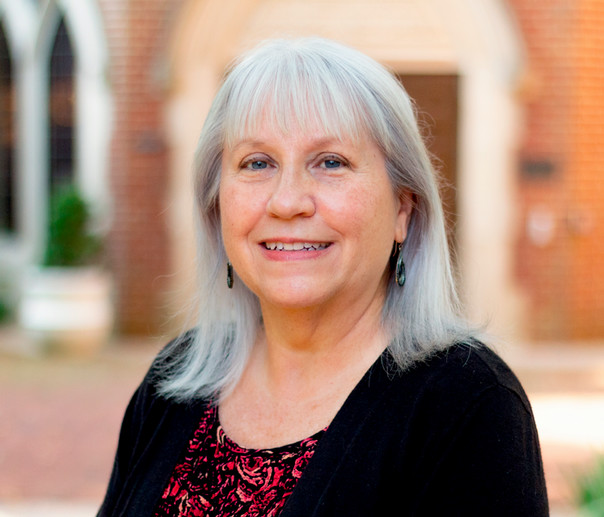
After 43 years in law librarianship, Janto retired in June, stepping away from her roles as faculty member and director of public and instructional services at Richmond Law’s William Taylor Muse Law Library. She held numerous leadership positions with the American Association of Law Libraries during her career, and, in 2023, she received the Marian Gould Gallagher Distinguished Service Award for her outstanding contributions to the field. Her tenure, however, was not without its hurdles.
“When it comes to legislative research, you kids today don’t know how easy you have it,” she writes in a 2016 essay, titled “OMG — The Internet Is Amazing.” Janto has gained a deep understanding of how emerging technologies influence the research landscape. Over the years, she has navigated fundamental shifts like the introduction of microfiche, a system of storage that condensed lengthy printed materials onto a small piece of film read with a special machine, and digital case “Shepardizing,” a legal citation process using Shepard’s Citations Service to validate the status of cases and statutes over time.
Learning about these tools wasn’t just helpful; it was necessary. “The method of delivering information is going to change constantly. But knowing and figuring out how that [method] works is the real challenge,” Janto says. “That is what librarians do. We figure out how the information delivery system works so that we can deliver the information that our patrons need.”
Never has that been more imperative than with the inception of AI, specifically generative AI, which, still in its infancy, is showing a proclivity to fabricate, or “hallucinate,” information when it cannot find a clear answer. Just before her retirement, Janto received an email from one of Richmond’s own access services librarians: “Well, it’s a first. I just got an interlibrary loan request for an article that’s an AI hallucination.” These instances are proving troublesome for research and information professionals — for now. “Maybe five years from now, that won’t happen anymore,” Janto says.
Unfortunately, the issue is not unique to Richmond. Nancy S. Kirkpatrick, L’99, recently named dean of libraries at Smith College, experienced similar events in her previous role as the dean of university libraries at Florida International University. She’s learned through these trials to view AI as a “trust but verify” situation. “It gives you things that don’t actually exist, but it does it in such a compelling way that if you’re not a savvy researcher, you’re just going to rely on it,” she says.
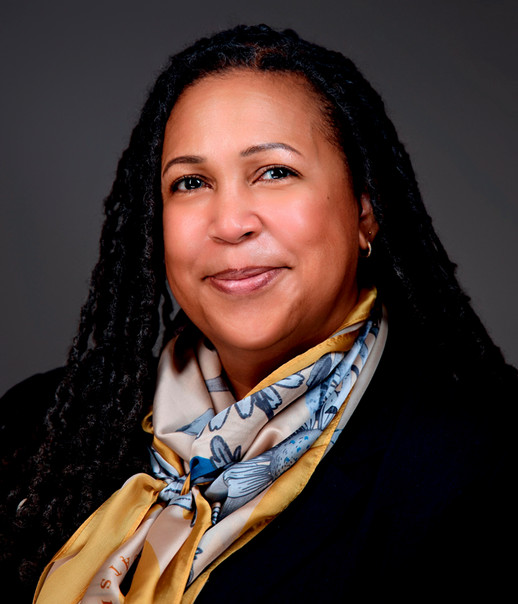
“It gives you things that don’t actually exist, but it does it in such a compelling way that if you’re not a savvy researcher, you’re just going to rely on it.”
That’s what makes teaching information literacy, especially digital and AI literacy, so important. “I think it’s just part of our job as librarians,” she says. But when it comes to educating the masses, Kirkpatrick names a lack of diverse representation, both in public spaces and the staff that run them, as one of the biggest barriers to accessibility.
“If I’m on the South Side of Chicago, and I walk into my library building, and all of the art is 1800s European ... those little things matter. And all of that has implications for who is going to use the space and, therefore, who is able to gain the information literacy necessary,” Kirkpatrick says.
No stranger to championing equity in libraries, both public and academic, the former executive director and CEO of library consortium OhioNet has written extensively on the topic. In “Creating Diversity in Libraries: Management Perspectives,” an article Kirkpatrick co-authored for the Library Leadership and Management journal in 2020, Kirkpatrick and her peers share how hiring and retaining a diverse faculty can help improve information literacy among marginalized communities. This dedication to inclusive leadership strategies is part of what drew her to Smith College.
“What I’m looking forward to at Smith is being part of an institution that was founded on this idea of equity and equality and making sure the voices that hadn’t previously been heard are heard,” Kirkpatrick says. Not only heard, but seen and received, promoting universal access to the kind of information literacy support that makes knowledgeable and ethical use of AI tools, for legal purposes or otherwise, possible. For Kirkpatrick, it all starts with library science education.
Writing the next chapter:
Pathways for a new generation of law librarians
Teresa Miguel-Stearns, L’94 and a former student of Janto, has taken that sentiment to heart. As the associate dean of legal information innovation and deputy director of the Daniel F. Cracchiolo Law Library at the University of Arizona’s James E. Rogers College of Law, she’s on a mission to increase accessibility not just to the library itself, but to careers in law librarianship. Like Janto and Kirkpatrick, Miguel-Stearns believes the prevalence of AI, especially in the legal sphere, makes librarians and legal information professionals more important than ever.
In 2023, she co-led a roundtable discussion hosted by the University of Arizona about AI and the future of law libraries. The report that followed, which included contributions from several other law librarians from across the country, discussed both the positive and negative impacts AI could have on the field. Ultimately, it highlighted the need for each institution to strike its own balance between increasing efficiency and minimizing the spread of disinformation through generative AI.
In many ways, she says, these technological advancements have increased the need for human intervention during the research process to make sure that all resources, not just the ones accessible to AI platforms, are considered. “It’s put more demand on us as librarians to ensure that our faculty, our students, and our public patrons understand the limitations of the tools they are using,” she says. Because of the novelty of this new technology, it’s easy for students and patrons to forget that there are still hundreds, if not thousands, of analog materials that have never been introduced to an AI program and thus cannot inform its responses.
“It’s put more demand on us as librarians to ensure that our faculty, our students, and our public patrons understand the limitations of the tools they are using.”
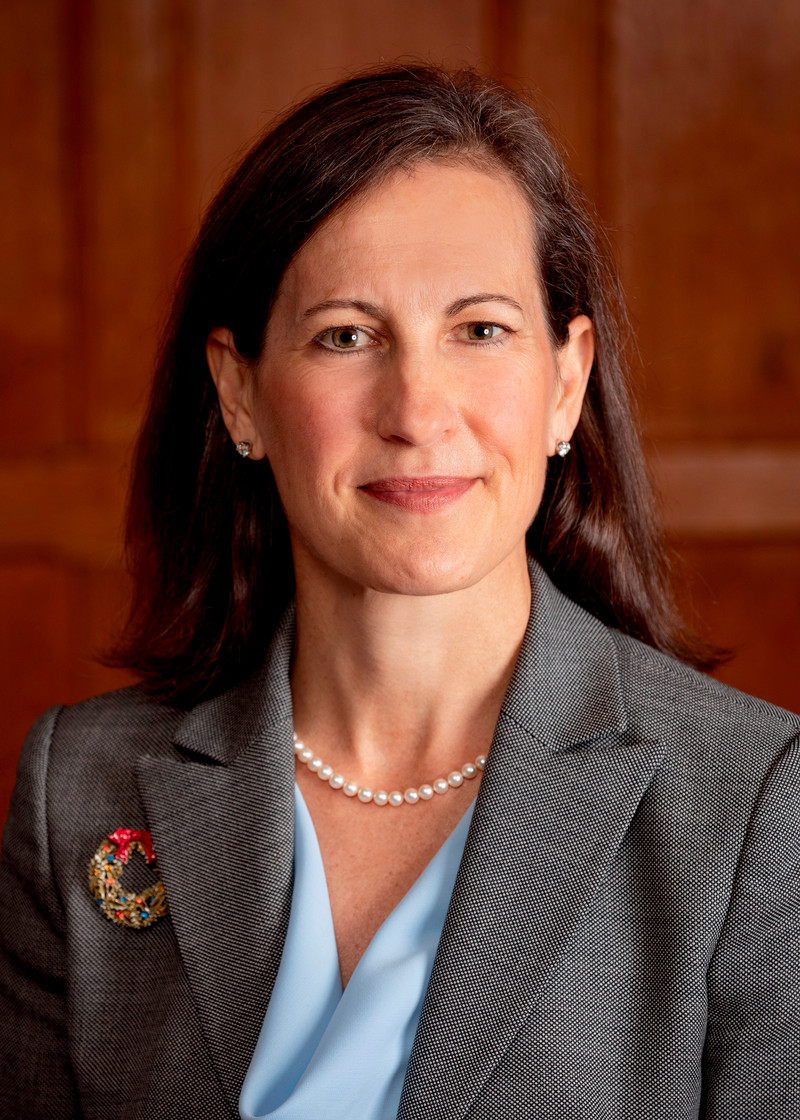
But Miguel-Stearns is also leading the charge to combat another growing challenge in the industry: With fewer candidates graduating with the traditional combination of Juris Doctor and Master of Library and Information Science degrees, often requisite to get a job as an academic law librarian, fresh faces are few and far between. “Our profession is suffering in numbers,” she says. “We don’t have enough truly qualified law librarians entering the profession and filling the jobs that are opening day in and day out around the country.” Over the last few years, many law libraries have faced dwindling candidate pools and even failed job searches, leading some to loosen their requirements.
In response, Miguel-Stearns began brainstorming alternative pathways to the profession that may make law librarianship more accessible by reducing some of the traditional financial and temporal barriers. In 2023, she co-authored a call to action outlining these new programs and urging other academic administrations to consider similar recourse.
Now, the University of Arizona’s College of Law offers three unique pathways to a career in law librarianship: a dual-degree program for those who wish to graduate with a JD and an MLIS; a second dual-degree option that pairs the MLIS degree with a new Master of Legal; and a Bachelor of Arts in Law with an accelerated MLIS track. All three degrees are offered both in person and online, further broadening their accessibility. These pathways are already making an impact — the first JD/MLIS and MLS/MLIS dual-degree students will graduate from the accelerated programs in 2026.
In addition to new programs, Miguel-Stearns says, better advertising of law librarianship as a viable career option is crucial to attracting more students to the profession. After almost a decade as a public defender, Miguel-Stearns only considered librarianship after speaking with a friend’s husband, who happened to be an archivist. Once she enrolled in library school, she fell in love. “And that story is not so different from many law librarians in our field,” she says.
Indeed, Kirkpatrick credits her career to Timothy L. Coggins, the former associate dean for library and information services at Richmond Law, who retired in 2015. “But for his legal research class and then his reaching out to me a few years after I graduated from law school to say, ‘Have you ever considered librarianship?’ I likely wouldn’t be where I am today,” she says.
Shifting perspectives:
Reimagining the role of librarians
Kirkpatrick has a few ideas about how the field can expand its reach to showcase librarianship as a career option. One of the most effective ways, she says, requires shifting the typical presentation of a librarian beyond the role of a person who simply shelves books.
“What I would love to see is a reimagining of what it means to be a librarian and a definition of librarianship that is much more inclusive of all the amazing things that we do,” Kirkpatrick says. “People don’t think about librarians being everywhere. Corporations have librarians; hospitals have librarians. I have a friend who applied to be the librarian at Rolls-Royce. It’s a job that people don’t think about. … Amazon and Google would not function without people who have master’s [degrees] in library sciences,” she says. “I think we need a good ad campaign. … We need the people who did the ‘Got Milk?’ campaign in the ’80s to come and help us figure out, ‘How do we have that moment?’”
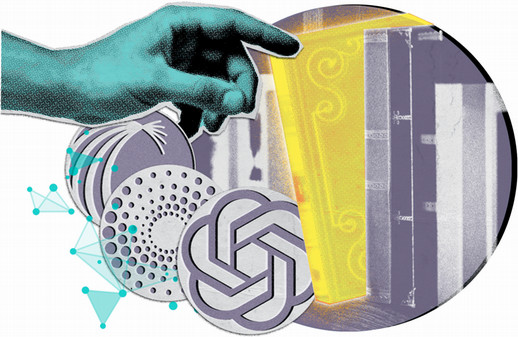
But whether it’s cataloging the latest loan, fact-checking an AI source, or educating students on effective research methods, librarianship is first and foremost a service profession — something all three alumni say makes their jobs extremely fulfilling.
“I think some people enter librarianship without realizing that it is a service profession. But it is,” Miguel-Stearns says. “An exciting part of the profession is helping people. It’s the reward and satisfaction that you get from helping someone track down something that they need for court or that they need for their scholarship, or seeing the light bulb go off above the head of a student who you’re helping, whether it’s in the classroom or one-on-one. If you love intellectually stimulating environments, if you thrive on change, then this is the profession for you.”
For Janto, this connection to the students, faculty, and patrons who frequent the library makes her retirement bittersweet. “The one-on-one, the classes, teaching students — that is absolutely the funnest part of being a law librarian,” she says. Although her teaching days are over, Janto still feels a profound connection to the work she’s done and the academic community she’s built, and her legacy at Richmond Law won’t soon be forgotten. Now, she’s excited to continue serving her community through volunteer work. “It’s been a very rewarding career,” Janto says, “and I’m glad I got to do it at Richmond.”
Hannah Rainey is a freelance writer based in the Richmond area.
